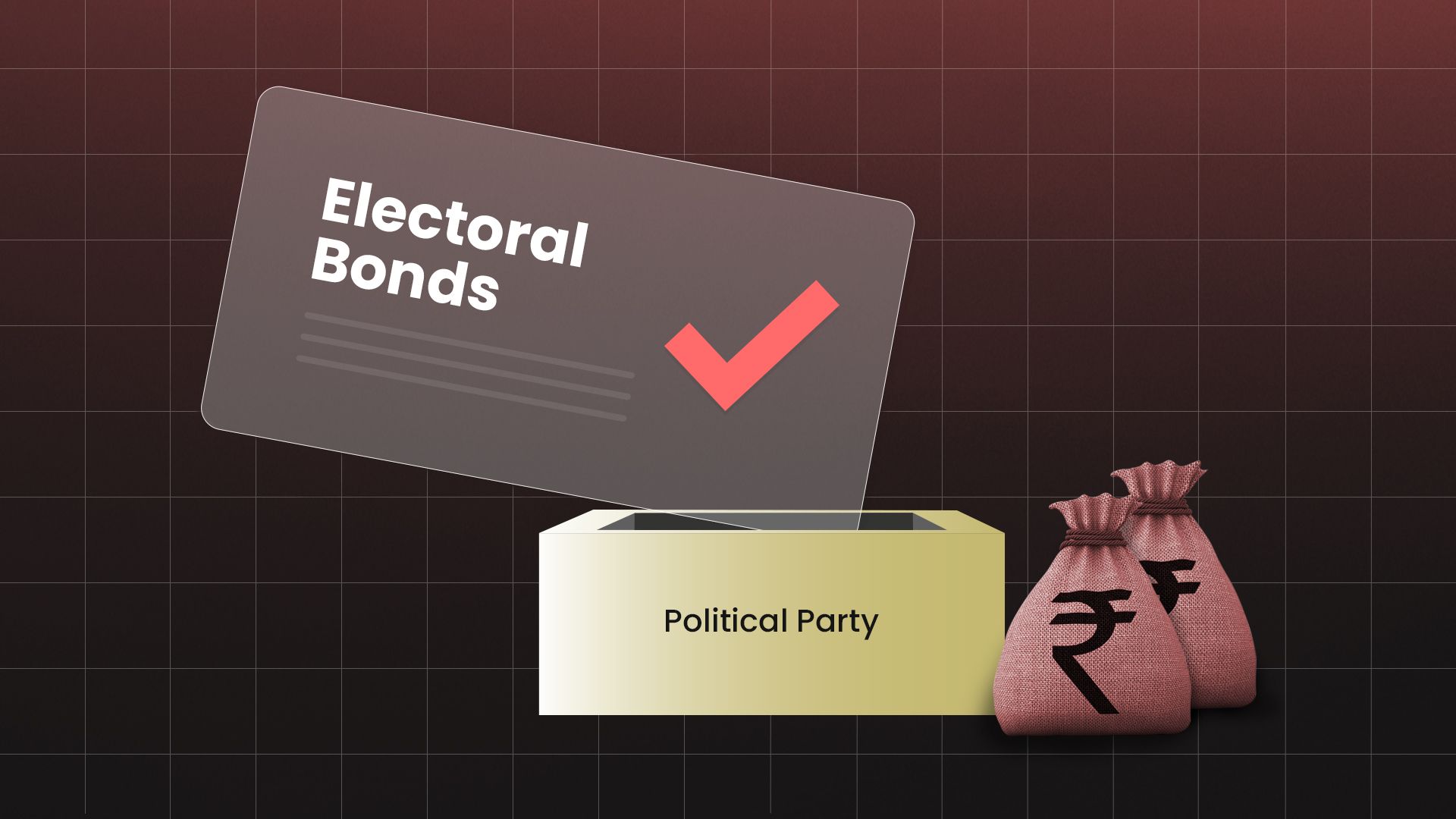News: SC strikes down electoral bonds scheme as ‘unconstitutional’
Q1. Analyse the pros and cons of the Electoral Bond Scheme and how it barred the citizens from the right to information.
Recently, the Supreme Court has given a verdict striking that the Electoral bond scheme is unconstitutional and upheld the citizens’ right to know the information. SBI must disclose details of each electoral bond encashed by political parties which shall include the date of encashment and the denomination of the electoral bond.
It held that “the deletion of the proviso to Section 182(1) of the Companies Act, permitting unlimited corporate funding to political parties is arbitrary and violate of Article 14”.
About Electoral Bond Scheme:
● It was first announced during the Union Budget session in 2017, “electoral bonds” are interest-free “bearer instruments”, which means that they are payable to the bearer on demand, similar to a promissory note.
● Electoral bonds allow Indian citizens or a body incorporated in India to purchase bonds, enabling anonymous donations to political parties.
● Purchased in denominations ranging from Rs1,000 to Rs1 crore, these bonds can be bought from authorised SBI branches through accounts complying with KYC norms. Following this, the political parties can choose to encash the bonds within 15 days of receiving them and fund their electoral expenses.
Reason for the introduction of Electoral Bond:
● The Centre’s rationale behind introducing the electoral bonds scheme was to “cleanse the system of political funding in the country” and bring about “transparency in electoral funding in India”.
● Before the scheme was introduced the political parties had to make public all donations above Rs 20,000. The Finance Act(s) of 2016 and 2017 amended four separate legislations to make way for the electoral bonds scheme, including the Foreign Contribution Regulation Act, 2010; the RPA, 1951; the Income Tax Act, 1961; and the Companies Act, 2013.
Interpretations of the top court about the scheme:
● The court stated that anonymous electoral bonds violate the Right to Information and Section 19(1)(a).
● Infringement of the right to information is not justified by the purpose of curbing black money. Since, the electoral bonds scheme is not the only scheme to curb black money.
● Amendment to the Companies Act which allows blanket corporate political funding is unconstitutional.
● The court criticized the government’s contention that voters do not have the right to know the source of funding of political parties.
Pros of the scheme:
Enhanced Transparency: Promotes transparency through engagement with election authorities and the public.
Preservation of Donor Anonymity: Allows confidential donations by individuals and organizations.
Discouragement of Cash Transactions: Requires payments through designated banks, reducing cash use.
Cons of the scheme
Crony Capitalism: No donation limits facilitates crony capitalism in which the private players influence the elections and the ruling.
Contradiction of Transparency: the bond with anonymity benefits the specific party and poses risk to free and fair elections.
Barred from right to know: Exemptions of political parties from disclosing donations contradicted the citizens’ right to know.
ADR Findings: National Parties saw a substantial surge in bond donations raising questions about their influence.
Way Forward:
● Chilean Experiment – Reserved Contributions: Under it, the donors could transfer the money they wished to donate to parties to the Chilean Electoral Service.
● The Electoral Service would then forward the sum to the party without revealing the donor’s identity.
● Disclosure Requirements: The government may reconsider and modify provisions of the Electoral funding to ensure full disclosure and transparency.
There is a need for effective regulation of political financing along with standard reforms to break the vicious cycle of corruption and erosion of quality of democratic polity.

